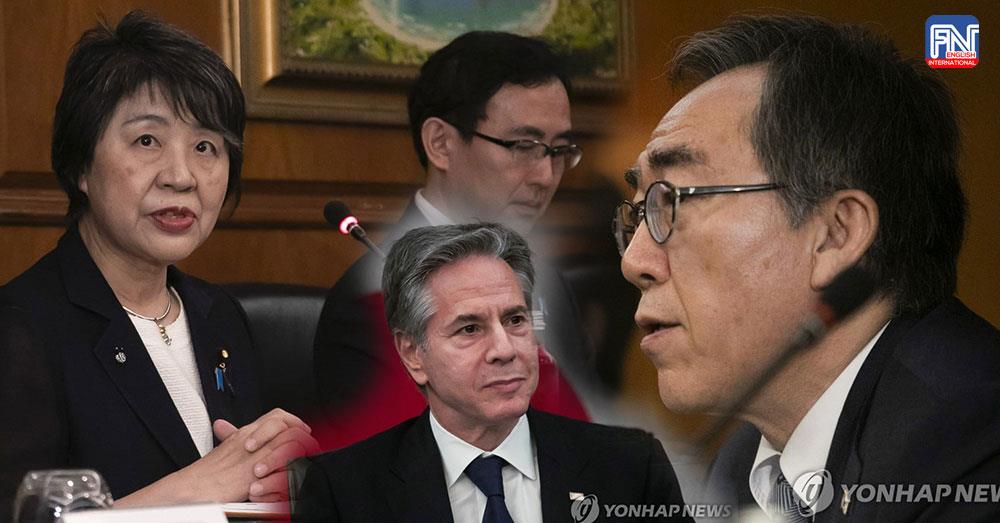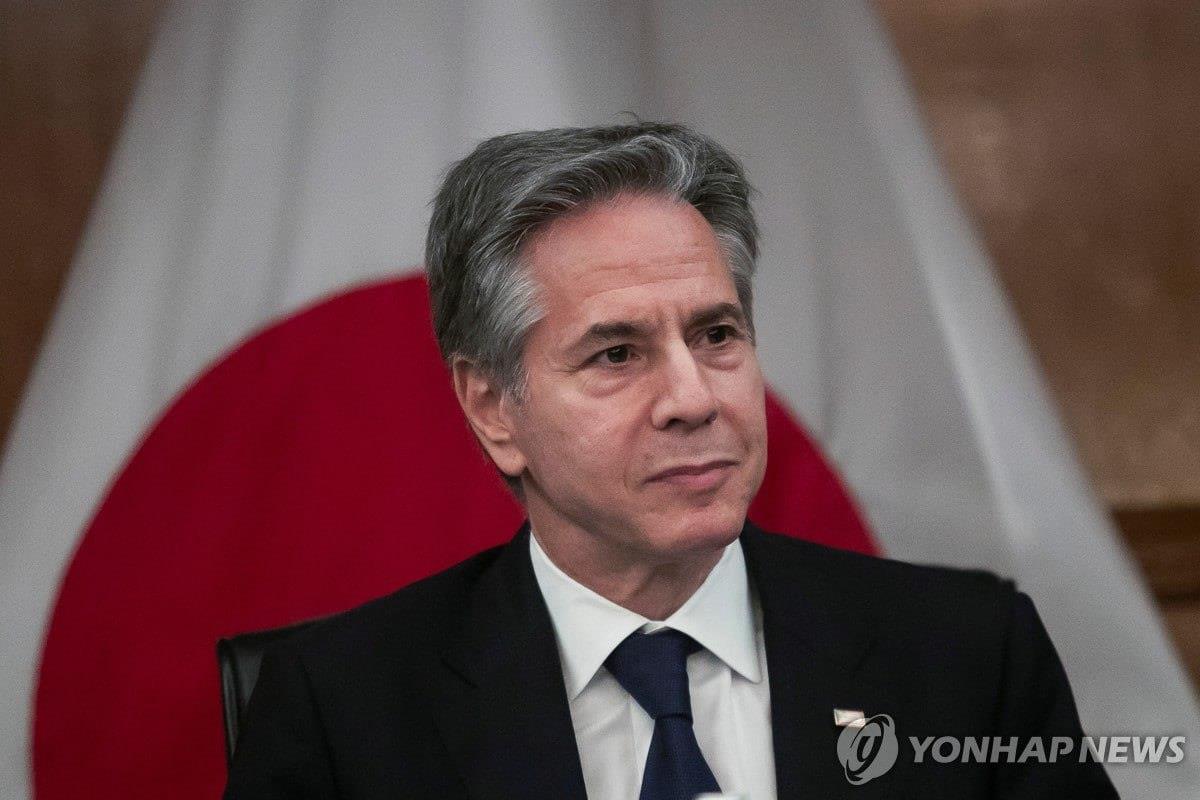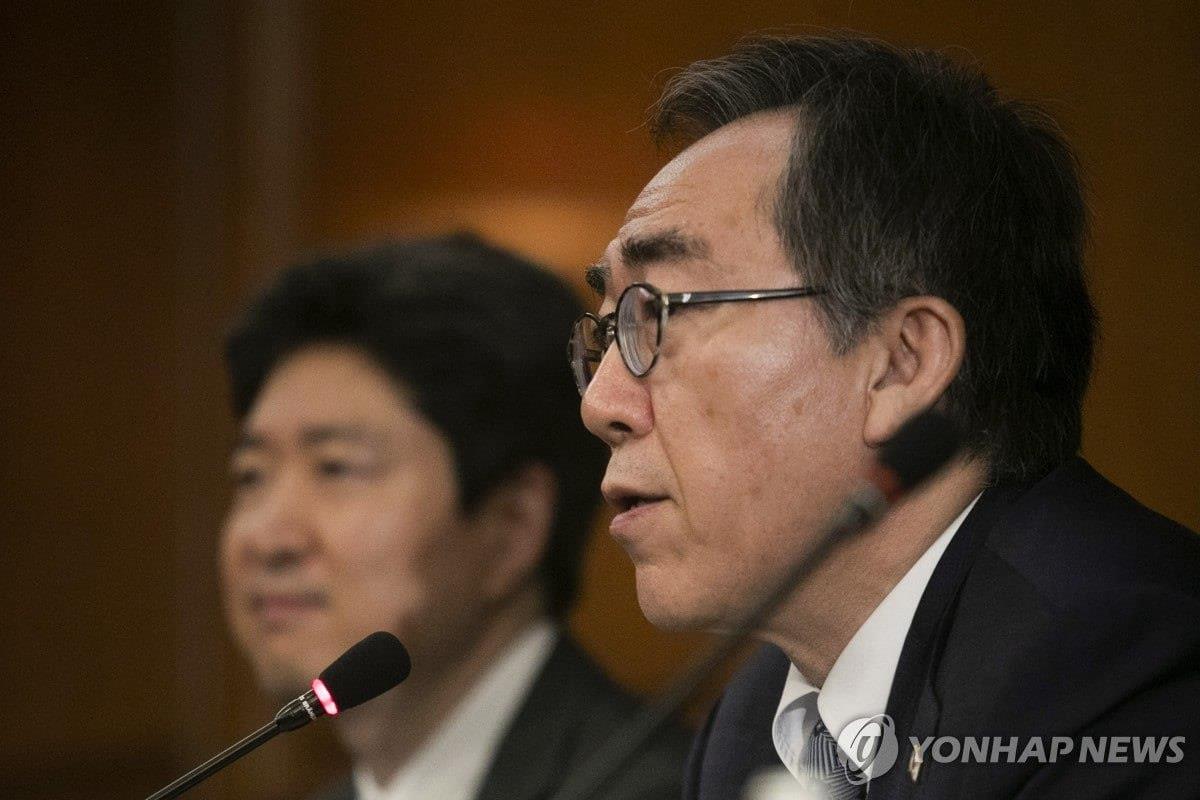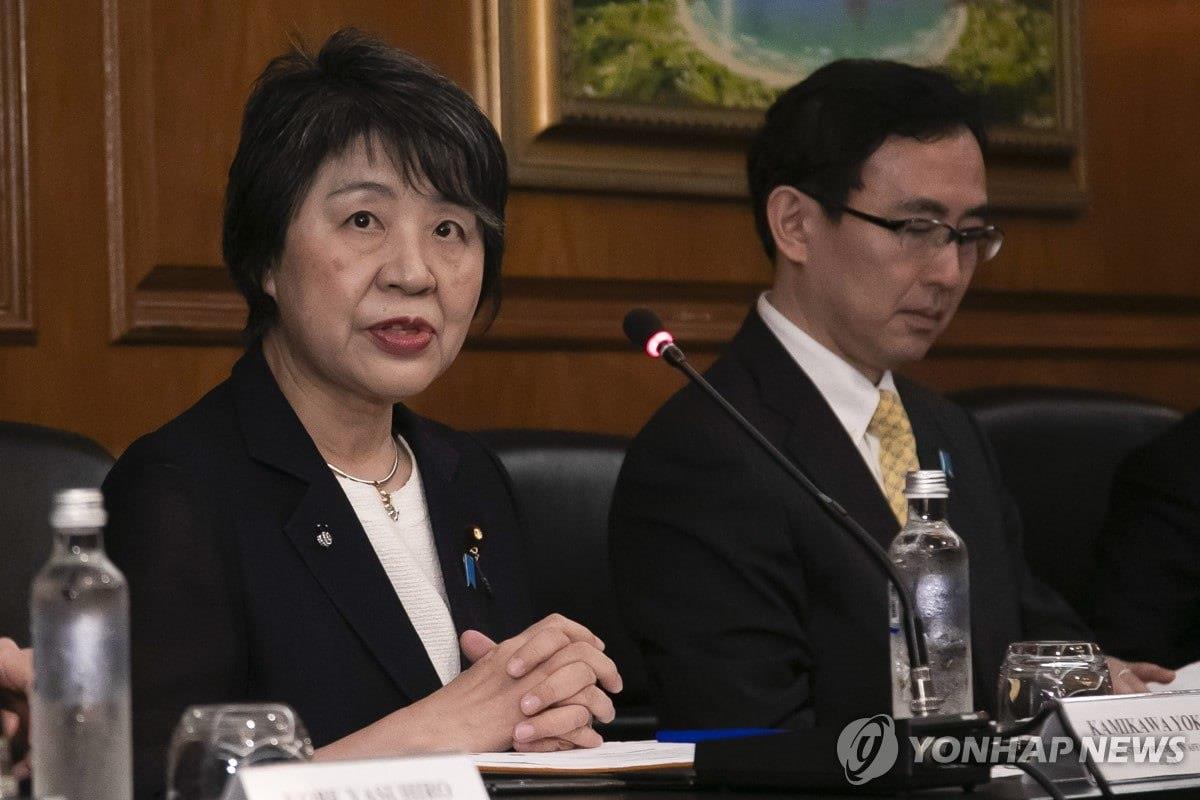SEOUL, Feb. 23 (Yonhap) – The top diplomats of South Korea, the United States and Japan highlighted the importance of trilateral coordination to respond to North Korea's provocative acts and its military support for Russia's war against Ukraine during their talks in Brazil on Thursday, the State Department said.
South Korean Foreign Minister Cho Tae-yul, U.S. Secretary of State Antony Blinken and Japanese Foreign Minister Yoko Kamikawa held a trilateral meeting on the margins of the foreign ministers' meeting of the Group of 20 nations in Rio De Janeiro.
The first three-way gathering since Cho took office last month came as the three nations have been deepening their cooperation on various issues, ranging from North Korean nuclear threats to economic security and export controls on technologies with security risks.
"Secretary Blinken, Foreign Minister Kamikawa, and Foreign Minister Cho also discussed the importance of building on close coordination in response to the DPRK's continued provocations as well as Pyongyang's growing military support for Russia's ongoing war against Ukraine," Matthew Miller, the department's spokesperson, said in a readout.
DPRK stands for North Korea's official name, the Democratic People's Republic of Korea.
Their discussions on the North came amid concerns that Pyongyang could engage in major provocations ahead of South Korea's parliamentary elections in April and the U.S. presidential election in November.
Cho, Blinken and Kamikawa also discussed efforts to maintain stability across the Taiwan Strait, the ongoing conflict between Israel and the Hamas militant group in Gaza and the urgent need to release all remaining hostages and increase aid to Palestinian civilians, Miller said.
During the talks, Blinken reiterated the need for closer tripartite collaboration.
"With growing regional challenges, including the DPRK's provocative actions and military cooperation with Russia, and increasingly assertive actions by the PRC, cooperation and coordination with our closest allies is more important than ever," Blinken said according to a transcript released by the State Department.
PRC stands for the official name of China, the People's Republic of China.
The three sides addressed efforts to deter North Korea's illegal cyber activities aimed at financing its nuclear and missile development programs, according to a release by South Korea's foreign ministry.
They also committed to continuing close consultations this year and strengthening trilateral communication at the vice foreign minister level.
Blinken took stock of progress that the three countries have made since the landmark trilateral Camp David summit that South Korean President Yoon Suk Yeol, U.S. President Joe Biden and Japanese Prime Minister Fumio Kishida held at the presidential retreat in Maryland in August last year.
The summit produced a series of agreements, including the three countries' "commitment to consult" each other in the event of a shared threat and cooperation in various other fields.
"We've advanced key commitments, including finalizing our trilateral missile data-sharing mechanism and a long-term military exercise plan; holding the first trilateral Indo-Pacific Dialogue; strengthening development cooperation in the Indo-Pacific; and launching cutting-edge collaboration in key technologies, including quantum computing," he said.
"We've also upheld commitments to consult with each other, to do so expeditiously, and to coordinate responses when we have a shared security challenge," he added.
South Korean Minister Cho called the tripartite meeting a "symbolic milestone" as the three countries have been deepening and broadening cooperation.
"First, it is the first trilateral meeting of the year ... Second, this year marks the 30th anniversary of the first-ever trilateral summit held in 1994. This gathering therefore represents a symbolic milestone in our journey together," Cho said.
"Third, this is our first-ever trilateral foreign minister meeting to be held in South America. I think it is emblematic of our global outreach and our commitment to meet whenever and wherever we can," he added.
Kamikawa expressed her eagerness to work together with her South Korean and U.S. counterparts to handle evolving North Korean threats.
"Looking at the global landscape, the free and open international order, based on the rule of law, is now being challenged," she said.
"It is already two years since Russia's aggression against Ukraine started. Our strategic coordination is more important than ever, and I am eager to work even more closely with both of you in dealing with North Korea and beyond," she added.
The Camp David summit marked a culmination of the three countries' efforts to deepen trilateral cooperation to deal with shared challenges.
The efforts for deeper three-way engagement gained traction as relations between Seoul and Tokyo, long strained over historical issues, have warmed since the South Korean president offered a solution to address the thorny issue of Japan's wartime forced labor in March last year.




Photo from Yonhap